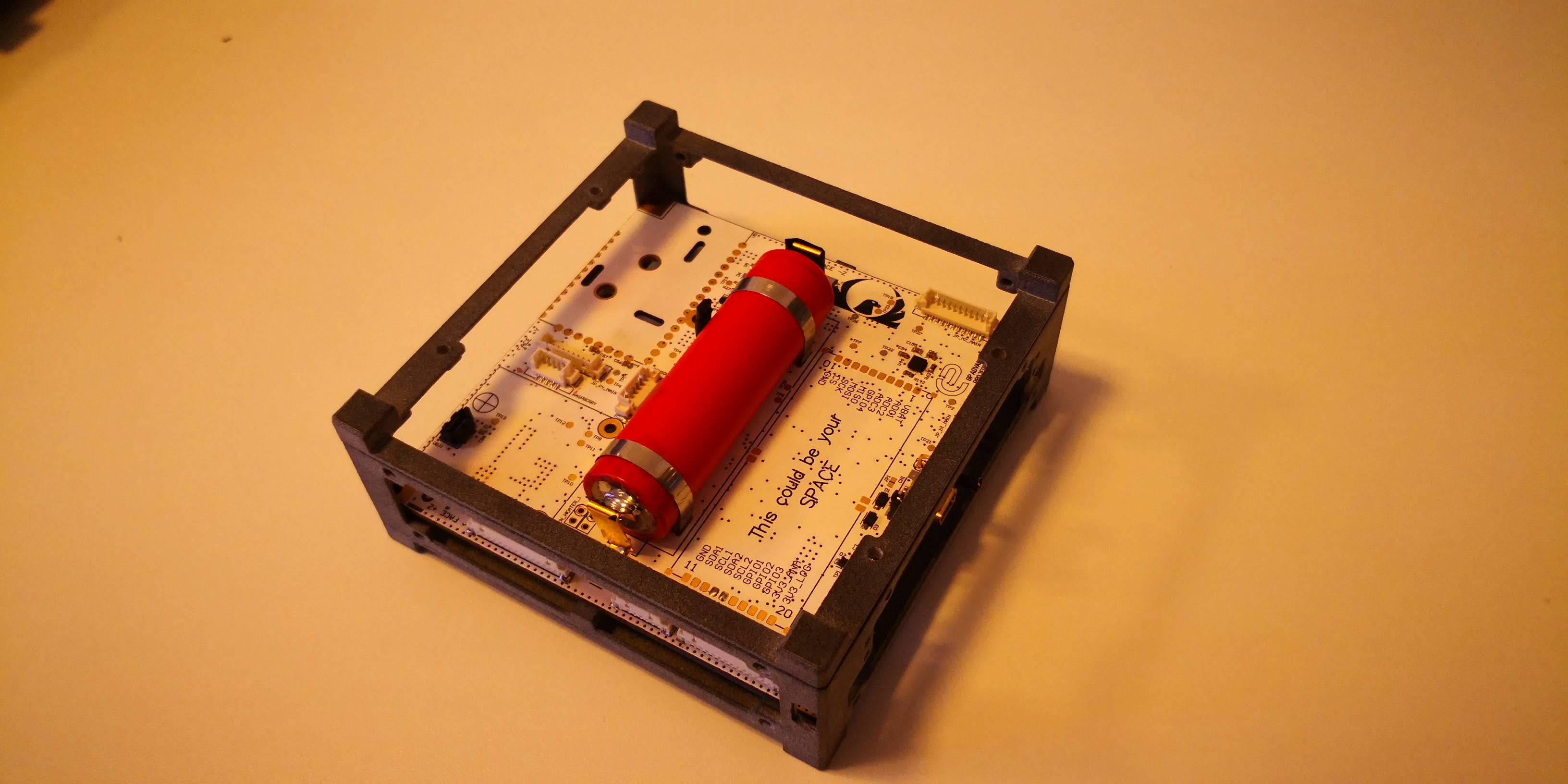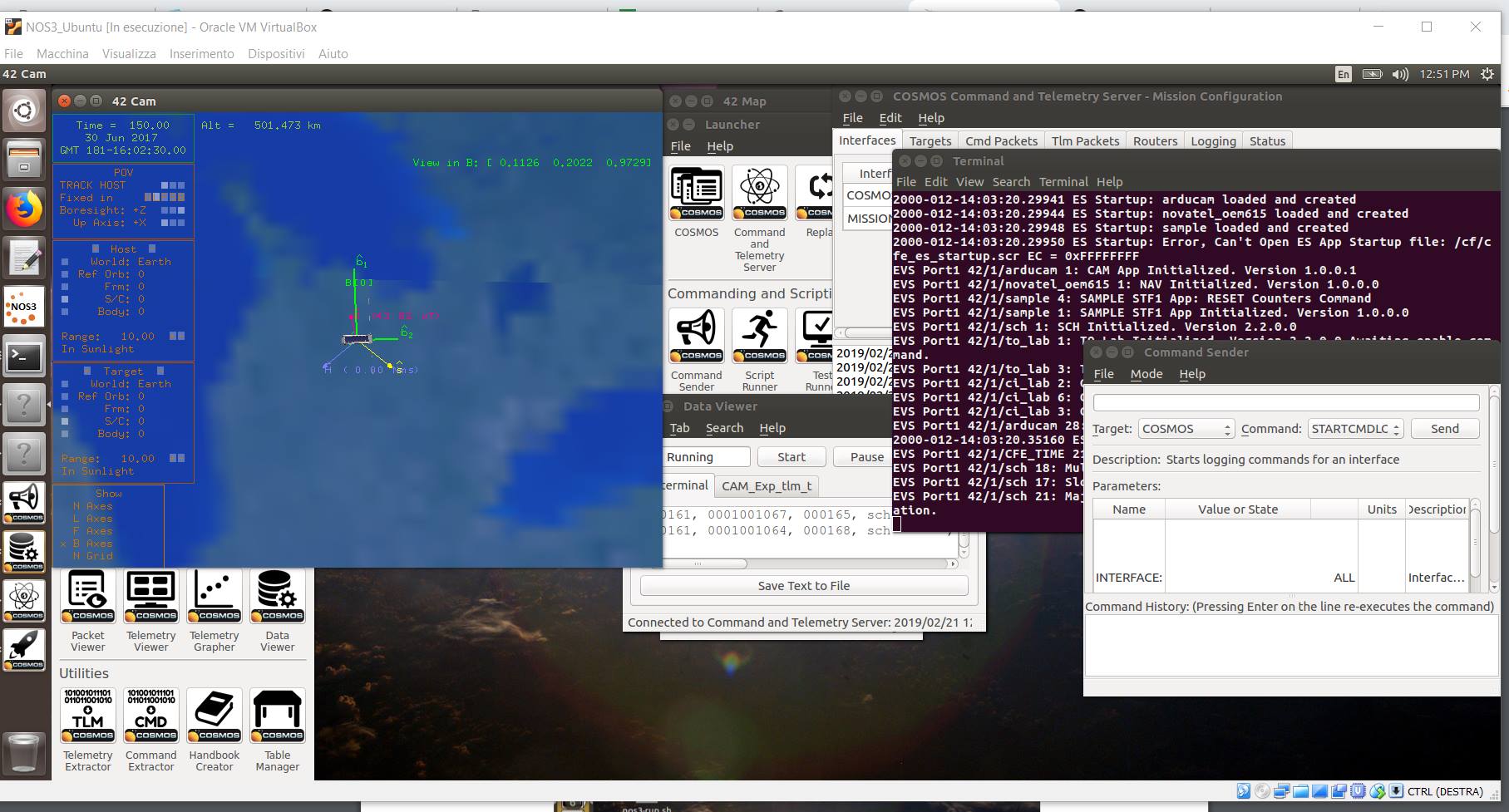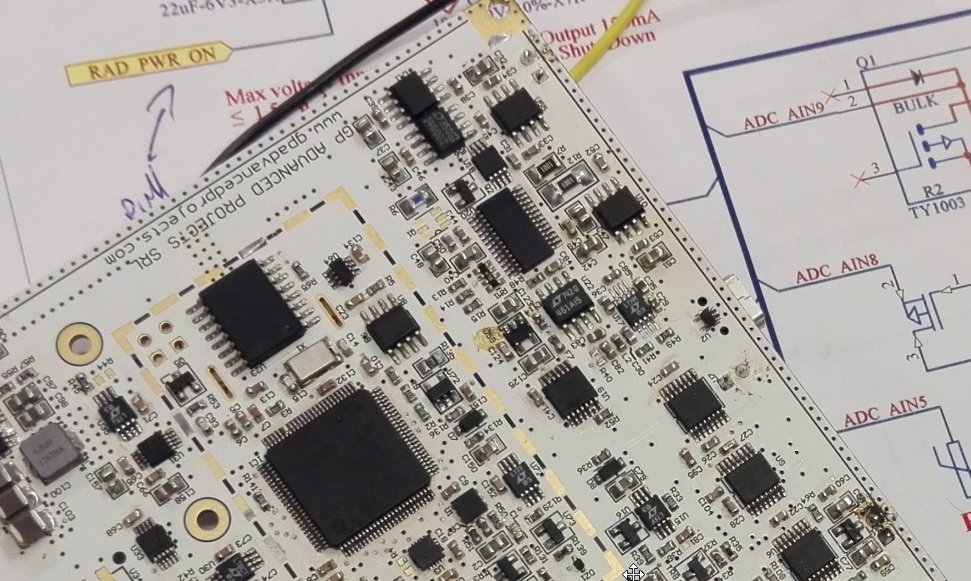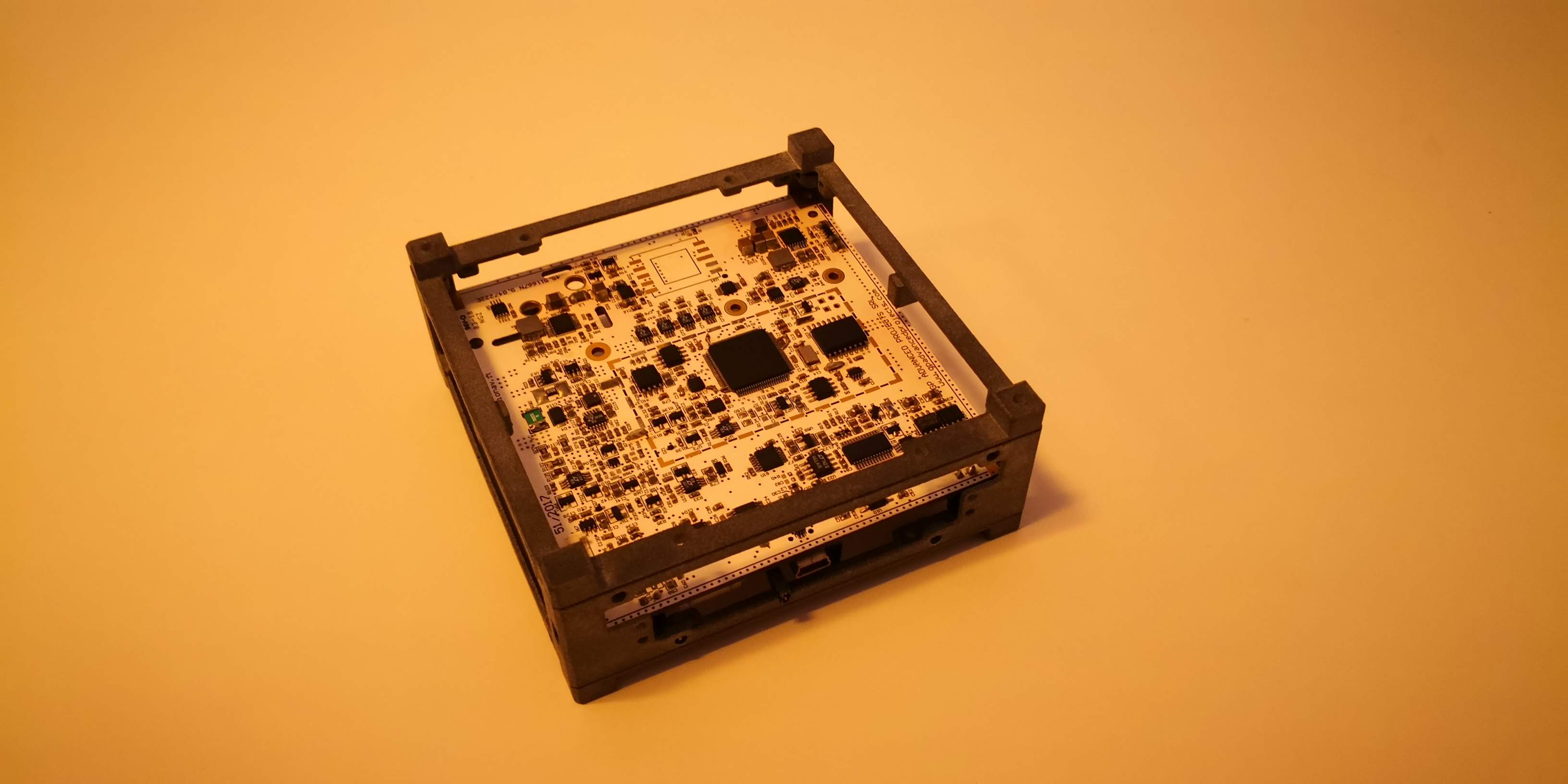History of the project
In 2016 Laser Navigation and GP Advanced Projects joined forces to create the first Italian commercial picosat. After more than 3 years of development thanks to the collaboration with, CESI, Linkit srl, Brno University of Technology, and the Polytechnic of Milan, the latter with its teachers and students we have created the first prototype, on which we will soon proceed with the tests needed to validate PicoSat before launch, scheduled for the first quarter of next year. The satellite will be launched on a synchronous orbit passing through the poles, and will make an orbit about every 90 minutes.
The cubesat FEES (Flexible Experimental Embedded Satellite) is based on a STM32F4 micro controller, the chosen operating system is ChibiOS and the development framework is derived from the Ardupilot opensource project, all features of the VR Brain, made by Laser Navigation, which was the board taken as the starting point to build the FEES main board, thanks to the indications and modifications provided by GP Advanced Projects. At the sensor level, it features an IMU that incorporates 3-axis gyroscopes and accelerometers, and a 3-axis magnetometer.
The system has an attitude system based on the use of magnetotorquer, which allow the pointing of the cubesat in the desired direction to optimize both the pointing of the edge antenna and the experimental camera mounted on the same.
The Payloads
The payloads mounted on board are the following:
- An experiment (RadEX2) for the detection of the total radiation dose to which the cubesat is subjected during its stay in orbit, developed thanks to Jiří Hofman of Brno University of Technology.
- An SDR system based on the Rasperry PI platform, capable of transmitting messages in SSTV and DVB-S format.
- A LoRa telemetry system through a specially designed on-board modem, in collaboration with Linkit srl
- A system for sending and receiving commands and basic telemetry thanks to short messages exchanged via Iridium satellite communication (to be confirmed based on current regulations)
The development of the cubesat firmware is feverishly advancing, given the increasingly narrow margins that bring us closer to the time of launch, even using SITL simulation systems to facilitate satellite debugging in a terrestrial environment.
For the success of the project we are looking for resources to accelerate the writing and debugging of the code that have already had experience in the field of space software development.
Primary Goals :
- In-orbit qualification of an attitude (meaning orientation and angular velocity) determination system. WHY? The attitude determination system, together with the control system, is one of the fundamental satellite components, and the basis for a future commercial platform.
- In-orbit qualification of commercial GPS receivers. WHY? They are less expensive than space graded receivers, nevertheless allow to know with a reasonable precision the position on orbit. Ideal for nanosatellites.
- Usage of the IRIDIUM global satellite network to receive data, supporting traditional radio transmissions. WHY? The IRIDIUM network allows to send/receive data in every part of the world, with a few second delay, without having to be in sight of a ground station, with obvious advantages for early warning needs (TBC).
- Development of a ground station network, to receive FEES data. WHY? To download a big amount of data from a nanosatellite it is still necessary to rely on a network of ground stations which guarantees an adequate coverage. Developing it now means that it will be ready to be used by our next satellites.
Secondary Goals:
- In-orbit qualification of an attitude control system. WHY? Attitude determination is useful, but even more is to use this information for attitude control, by using actuators and by following clear goals, such as to point toward the sun to recharge the batteries, or to point toward the ground to take pictures.
- Testing of various transmission protocols by using Software Defined Radio (SDR) digital technology.WHY? By having a specific transceiver on board it is possible to modulate the signals in order to obtain different advantages, such as a longer transmission distance, or a higher download data rate. This will allow to identify the best solution for future missions needs. In this task FEES is supported by the radio-amateur and developer community.
- To take picture by using a mini camera. WHY? Miniaturization allows to have on board a camera which sees in the visible spectrum, taking pictures which can be used for Earth imaging, but also to take pictures of the stars to determine satellite position with appropriate algorithms.

A platform for the Makers and radio amateur Community
Thanks to the Raspberry Pi based SDR, the satellite is a platform to experiment transmission protocols which are still not tested in space applications. The flexibility of the RPI solution allows the community to code the experiments in a familiar environment paving the way for the execution of very different test during the satellite lifetime.
Thanks to Ardupilot community we open a new space opportunity to open source flight control board after great success in drone development did in last 10 years.
Who’s behind F.E.E.S.
GP Advanced Projects srl has a strong know how in space systems and infrastructures, but also in system engineering and project management activities in general. In addition, the company has a proven experience in dealing with European companies, institutions, research bodies and space agencies, both European and non-European, and with launch providers.
The management responsibility of the FEES project belongs to GP Advanced Projects.
Laser Navigation srl is a company with a proven background of electronic devices design and development, in particular in the Unmanned Aerial Vehicle (drones) sector, where it develops autopilots and control systems. In additions Laser Navigation has a strong know-how in telecommunications and radiofrequency applications. Laser Navigations is in charge of the whole FEES electronics.
Politecnico di Milano is key actor in space activities, thanks to its participation to some of the most important European and non-European missions. Politecnico di Milano support FEES in analysis and design activities.
CESI is a European leader in the production of solar panel for space application. CESI provides the photovoltaic cells which generates the energy that FEES needs.
It is in charge of FEES TT&C module and ground station design.
The Brno University of Technology, and in particular the Faculty of Electrical Engineering and Communication, is in charge of designing the satellite radiation monitor.
Furthermore the FEES development is supported by the radio-amateur community for the Software Defined Radio (SDR) development and the ground station support.
Thanks to : Guido Parrisenti for the original idea , Stefano Ampolo and Luca Micheletti , for video animation and FEES coding , Diego Ambroggi for schematics and PCB design.
FEES. needs
The FEES projects is completely self-financed. The launch has already been purchased and launch date scheduled.
To mitigate internal development cost and to increase the mission success probability, GP Advanced Projects is looking for companies and institutions willing to sponsor FEES, or to participate to the projects in various ways.
More detail about public github with detailed board information and firmware well be available in the next weeks.
Best
Roberto Navoni


